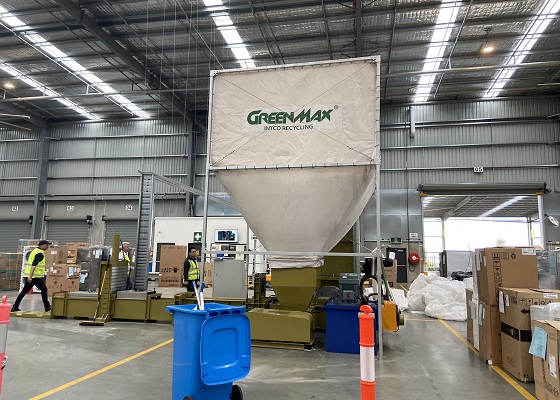Why is expanded polystyrene recycling so important?
Expanded Polystyrene (EPS) can be recycled and is recycled in Australia and around the world. It is one of the most efficient and economical insulating materials. Its low rate of thermal conductivity makes it extremely reliable for transporting temperature delicate items.
100% Recyclable: Not several individuals understand that EPS is 100% recyclable. Clean material can be reused in the production procedure of new EPS boxes. Any kind of a little infected material can be compacted and turned into recycled rigid plastic products.
EPS is 98% Air: Expanded Polystyrene is extremely comparable to a party balloon due to the fact that what you see, when you consider a piece of EPS or a balloon is just the 2% of what composes the things final shape. The 98% of the item that you do not see is thin air!
EPS has an ODP of Zero: EPS has an Ozone Depletion Potential (ODP) of absolutely no and causes no damages to the ozone layer because no CFC's or HCFC's are used during the manufacturing procedure. EPS is inert, does not seep any kind of chemicals and is completely food contact safe.

Why is Expanded Polystyrene a Good Insulator?
Expanded Polystyrene is an effective insulator since it's packed filled with tiny air pockets. Air is a very bad conductor of heat so heat transfer is minimized.
EPS is a closed cell foam, meaning every cell is closed off to the other cells that border it. The cell wall surfaces assist to provide strength to the material and trap air inside.
Expanded Polystyrene Recycling Case Studies
The Lismore City Council is a model council for recycling and environmental protection in Australia. It has started recycling-related projects in 2009. At that time, Lismore City’s introduction to this project was “This project will implement new waste and recycling bins across several parks and sporting facilities in Lismore. In addition to constructing and installing new bins, Lismore City Council will undertake a litter check and community education strategy to maximize the benefits of recycling bin infrastructure. This project will be undertaken over the 2104–15 financial year, and is estimated to recover over 11 tons of recyclables per year once concluded.”
In 2015, GREENMAX visited the Lismore City Council and learned about the Polystyrene recycling model in Lismore and found that Lismore’s recycled polystyrene quality control is not very good, so GREENMAX conducted on-site guidance, and the city of Lismore has been recycling polystyrene waste of great quality until now. Find out more.
In April 2022, JB HI-FI purchased GREENMAX hydraulic compactor, the latest polystyrene compacting technology in the world, integrating the benefits of standard polystyrene screw compactor and also hot melting machines. Equipped with high-efficient automated hydraulic system, the waste polystyrene is crushed and after that moved right into a storage bin of the GREENMAX Heracles Series polystyrene Compactor via a screw and then compressed right into dense and uniform blocks with a volume reduction proportion of 70:1, reducing the volume of waste polystyrene, as a result saving storage space and also transportation prices. Find out more.
Extra work is required by the government and local authorities to manage materials at the end of their life to reduce the influence on the environment.
There is growing concern and even more scrutiny than ever highlighting the environmental impact of all the materials that we utilize daily. EPS is a lightweight, rigid molded foam widely utilized in the food services industry for its outstanding thermal properties for both reuse and recyclability.
How to recycle expanded polystyrene?
Granulation
Foam plastic pelletizing systems are generally designed for foamed plastics. As foamed plastics have a large volume, light density, and even gas containing air inside the material, multi-screw conveying has certain requirements during the granulation process to achieve a certain capacity requirement.
GREENMAX foam plastic pelletizing systems are mainly for EPS, EPE, EPP and other foam plastics. Whether it is compressed EPS, EPP, EPE plastics, or uncompressed and volume-reduced foam plastics, GREENMAX can provide customized solutions and help to take these foams directly into plastic pellet products and back into the circular economy.

Compacting
GREENMAX foam recycling machine can reduce the volume of EPS foam to 1/50 and 1/90 of the original, effectively saving the storage space of waste EPS polystyrene foam, saving transportation and storage cost, and then turn it into recycled particles through recycling technology for the production of plastic products, which are widely used in the field of environmental protection frame, environmental protection picture frame, environmental protection mirror frame, foot line, top corner line, outdoor floor and other indoor and outdoor decorative materials.
